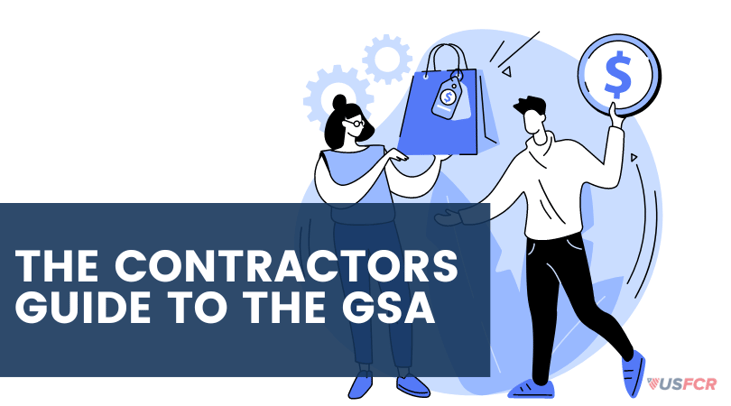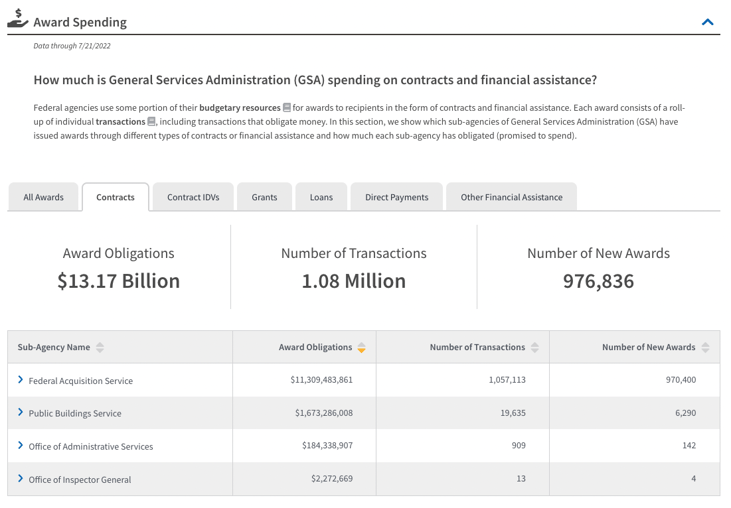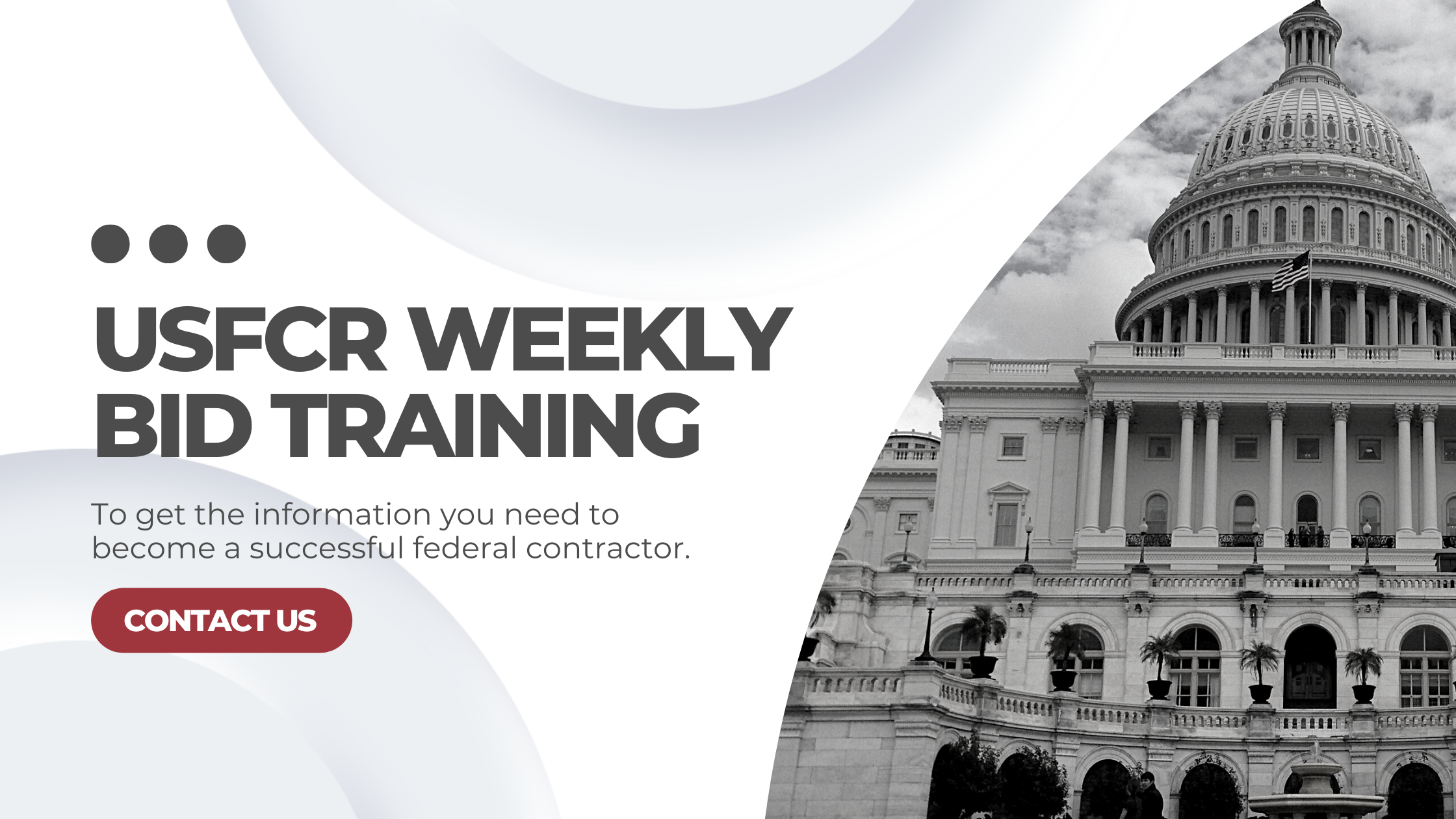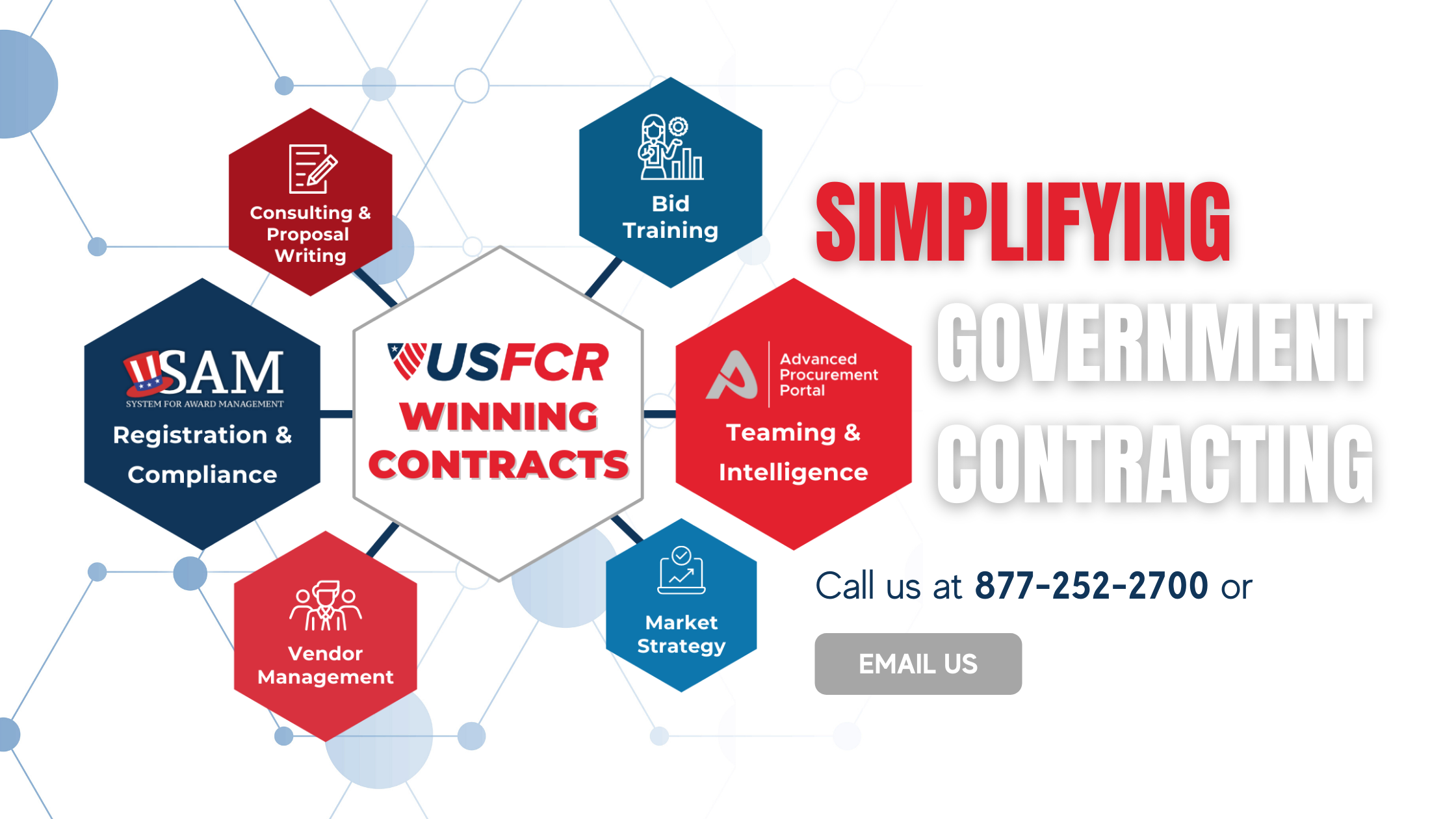
Editor's Note: This post was originally published in March 2016 and has been updated for accuracy and comprehensiveness.
Government contracting is often seen as the holy grail for business, a reliable partner with a never-ending requirement and funding source. With such a large market, it is no surprise that businesses want a piece of the pie. But is the pie right for you?
Today, we’ll look at one slice: GSA Schedules. If you'd like to skip ahead, we've laid out the sections for you below:
- What Does GSA Stand For?
- What Are GSA Schedules?
- Are GSA Schedules the Right Fit for My Business?
- Where Can I Learn More About GSA Schedules?
- How to Get a GSA Contract
- How Long Does it Take to Get Certified?
- I was awarded a Schedule. Now What?
- List of GSA Schedules
- Key Websites and Resources
First, What Does GSA Stand for, and What Do They Do?
The General Services Administration (GSA) is an agency of the federal government charged with centralized procurement oversight, building and lease management, and acquisition solutions. Often called the “landlord of the government,” GSA provides two major services to the government and the public, at large: The Public Building Service and the Federal Acquisition Service.

The Public Building Service (PBS) is the landlord. They are tasked with the maintenance of federally owned buildings, leasing and management of the vast real estate portfolio, and acquisition and maintenance of services, supplies, utilities, and construction to maintain federal real estate.
The Federal Acquisition Service (FAS) focuses on streamlining the procurement of supplies and services for federal agencies, the military, and beyond. They provide comprehensive acquisition support, mainly through the large GSA Schedules.
What Are the GSA Schedules?
The federal government needs a tremendous amount of supplies and services, many with short turnaround times and long-term commitments. Thus, the government established governmentwide contracting programs; the largest and most successful are the GSA Schedules Program.
'Schedules' is shorthand for the Federal Supply Schedules (FSS) and Multiple Award Schedules (MAS). These are large, long-term, government-wide contracts with businesses and industries.
Schedules connect government buyers to businesses to source compliant products and services at fair and reasonable prices. The large contract vehicles allow streamlined, technology-based orders that reduce administrative time for both buyers and sellers.
There are currently 32 distinct schedules, with nearly 19,000 contracts in place. Contract holders offer over 11 million supplies or services with billions of dollars in revenue processing through the contract vehicles.

*Contract award spending by the GSA for the 2022 Fiscal Year.
GSA Schedules meet all the requirements of the Federal Acquisition Regulations (FAR), including competition requirements, key labor and socioeconomic requirements, and federal trade agreement requirements. The schedules, fully compliant, provide buyers and sellers with an opportunity for streamlined, targeted acquisition in a fierce marketplace.
Who Are the Buyers?
The federal contracting sphere is expansive, with opportunities to sell to multiple agencies and organizations within and beyond the federal government. So, who buys through the GSA schedules?
- The Federal Government: Civilian and military agencies
- District of Columbia
- Certain approved non-profit agencies
- Mixed ownership government corporations
- State, local, and tribal governments for certain items
- Educational institutions for certain items
- Contractors authorized under FAR 51
Who Are the Sellers?
The sellers are contractors like you. They are predominately small businesses focusing on a specific set of supplies or services, separated into 32 different categories. To demonstrate the depth and breadth of the schedules, we have included a sample of the categories, including:
- Facilities Maintenance & Management (03FAC)
- General Purpose Commercial Information Technology Equipment, Software, and Services (IT70)
- Temporary Administrative and Professional Staffing (736)
- Sporting Goods & Equipment (192 02)
- Transportation, Delivery, and Relocation Solutions (48)
- Federal Strategic Sourcing Initiative-Office Supplies (OS3)
- Automotive Superstore (23 V)
- Hardware Store, Home Improvement Center, or MRO-Storefront (105 001)
- Total Solutions for Law Enforcement, Security, Facilities Management, Fire, Rescue, Clothing, Marine Craft & Emergency/Disaster Response (84)
- Professional Services Schedule (00CORP)
- Pharmaceuticals & Drugs (65 I B)
What Are the Benefits to Buyers?
Buyers using governmentwide contracts like schedules benefit in innumerable ways. By putting GSA schedules in place, the government receives the following:
- FAR compliance
- Compliance with the Competition in Contracting Act
- Negotiated contract ceiling prices with potential discounts on each order for easy budgeting and estimation
- A reduction in contract administration requirements, since agencies are only placing orders and the master contract is administered by GSA.
- Socioeconomic credit for orders awarded to small businesses and other socioeconomic categories
- Access to small businesses that support targeted socio-economic goals
- Pre-qualified contractors with established past performance and pre-approved service capabilities and supplies.
What Are the Benefits to Sellers?
Just as the federal government has many benefits, so too do sellers in the GSA schedules marketplace. According to GSA, “schedule purchases represent approximately 21 percent of overall federal procurement spending--about $42 billion per year.” That’s a lot of opportunities if it is the right fit.
In addition to a larger piece of the pie, sellers benefit from the following:
- Preapproval and qualifications from a trusted source, demonstrating your firm’s capability to provide the products and/or services on schedule.
- Pre-negotiated pricing makes quotes and proposals easier to determine
- Less competition because you are only competing against fellow schedule holders. That said, competition is fierce, and the market is tight.
- Another avenue to sell: Contracting specialists use schedules to do market research
- Increased opportunity to get your name and products in front of federal buyers, leading to additional opportunities if you play your cards right.
- Increased socio-economic set-asides. Federal buyers must set aside a certain percentage of contracts and awards to targeted socioeconomic groups. Being a small business with certification (including Women-Owned Small Business (WOSB), Veteran Owned Small Business (VOSB), 8a small business, and HUBZone Small Business) can increase opportunity.
- Long-term contracts, up to a potential 20 years if all options are exercised.
Are GSA Schedules the Right Fit for My Business?
There are a lot of benefits to buyers and sellers, but GSA Schedules are not always the right fit for every business. Determining if you are in the right position to pursue a schedule is important. It is an extended time commitment with extensive administrative and marketing requirements. Below are key steps to follow to determine if a schedule is right for you.
Ensure You Meet the Minimum Qualifications:
GSA schedules have a minimum threshold for participation. It is important to remember that GSA wants to award contracts to companies that can perform. These are only the minimum; additional requirements and expectations are detailed in the solicitation.
- Two years in business, with two years of financial statements
- Measurable past performance, provided via the Contractor Performance Assessment Reporting System (CPARS)
- Ability to comply with key clauses of solicitation, including
- Trade Agreement Act
- Buy American Act
- Service Contract Act and prevailing wage rates
- ordering procedures
- administrative and reporting requirements
Do Your Research: Does the Government Purchase What You Sell?
1. Visit System for Award Management (SAM), where you can review current GSA schedule holder contracts, follow links to current solicitations, and review who the competition is.- Another place to search is the Advanced Procurement Portal (APP). APP is a web-based contracting search and management platform that simplifies research.

2. Visit GSA Advantage, where you can view current supplies and services, as well as price points.
3. Use the Schedule Sales Query (SSQ) Tool, where you can research detailed sales information on the schedule holder’s sales history and data. This will help you determine if products similar to yours have sold, when they sold, how often they sold, and at what price they’ve sold.
Look at the Schedules and See Who the Competition Is
- Who are my competitors?
- How often are they receiving awards?
- Is one company dominating the GSA Schedule field?
- Is their pricing more, less, or in line with our pricing?
- Can we compete against the currently listed price points? Remember, pricing on GSA schedules are ceiling prices. During the quote phase, contractors can quote lower prices, but they cannot go above the listed pricing in the contract.
- What are their delivery terms?
- What about warranty terms?
- Are their catalog offerings more, less, or the same as our catalog offerings?
- Can we compete in this market right now?
- If so, what’s next?
- If not, how can we become competitive?
- What sets us apart in this market? How can we market and sell ourselves on schedule?
Develop a Marketing Plan
Just because you get a schedule doesn’t guarantee success. It’s only the first hurdle along the way. A schedule just gets you in the room, you must still be able to market and sell your goods to the government, building awareness of your business and encouraging the use of your schedules.
When assessing the feasibility of a GSA schedule, it is important to develop a marketing plan that details how you will reach government buyers. This plan will allow you to determine if you have the capacity and capability to market and reach agencies to drum up essential business.
Do a Cost/Benefit Analysis
Preparing, submitting, negotiating, and processing a GSA schedule proposal and the subsequent award is a serious time commitment. It is vital that you evaluate if you have the capability and capacity in-house to develop a compliant, winning proposal. Important questions to ask when conducting a cost/benefit analysis for schedules include:
- Is the time, cost, and energy worth a schedule?
- Do we have the talent in-house to create and administer the contract?
- Can we afford an outside consultant to help if issues emerge?
- Can we support the additional administrative and reporting requirements?
- Can we ramp up our order processing without extra burdens or outlays?
- Are we willing to take on additional staff, debt, or outlays to win the contract? What about after an award?
- Can we quickly and efficiently respond to eBuy quotes?
- Can we meet the minimum sales threshold required by the contract?
Where Can I Learn More About Schedules?
GSA understands the complexity of the GSA schedules and offers training and educational opportunities to ensure contractors approach the process with eyes wide open. Let’s take a look at a few educational opportunities.
Mandatory GSA Trainings
To participate in the GSA Schedules program, GSA requires participation in key pieces of training to provide your company with key aspects of the program and ensure programmatic success.
- Pathway to Success: This mandatory training guides businesses through background information, participant expectations, schedule contract holder success, business plan development, and submission of a winning offer. It includes an assessment test.
- Readiness Assessment Training: After pathways, you must take the Readiness Training before submitting an offer. This self-evaluation module drills down into the schedules assisting you as you research, analyze, and develop a final decision on if the schedules are right for you.
In addition to developing a go/no-go decision, the assessment will help you determine the right schedule, categories, and Special Item Numbers (SINs) you are best suited to compete in, learn about the system, begin market research requirements, and firm up your understanding of the complexities and requirements of the GSA Schedule Program.
Optional Training and Resources
In addition to the mandatory training, GSA and other federal agencies offer educational resources.
GSA Schedule Vendor Days
GSA offers Vendor Days to provide in-person opportunities to learn about schedules, requirements, agency needs, and expectations. The face-to-face opportunity also offers a chance to get your name in front of buyers.
Office of Small Business Utilization Online Training
In addition to the above mandatory pieces of training, GSA offers extensive online training opportunities for companies of all sizes. A few online pieces of training that will benefit potential GSA schedule holders include:
- New Contractor Orientation for Schedule Holders
- How to Prepare Government Contract Proposals
- Marketing 101: A Guide to Winning Customers
- Government-Wide Acquisition Contracts
- GSA Information Technology-For Schedule 70 participants
- Acquisition Gateway
How to Get a GSA Contract
To be awarded a GSA Schedule contract, there are intense requirements and extensive preparation. The process can take up to a year to gather the data, ensure registration, and submit an offer. To set yourself up for success, there are a few key pieces of information you can begin to gather now.
Prior to Preparing a Proposal:
Register
You must be registered in the System for Award Management (SAM), be active and compliant in the system, and complete your annual reps and certs in order to compete for awards.
Establish a Digital Certificate
The GSA Schedule proposal process is electronic, so you must possess and maintain digital signing certificates. You can get and maintain active digital certifications via two websites that meet GSA standards:
- IdenTrust
- Operational Research Consultants (ORC)
Gather Key Past Performance Data
GSA usesContractor Performance Assessment Reporting System (CPARS) to assess and review past performance as a key factor. You need at least three past performance references completed in the open rating system. Due to potential time constraints, gathering these before beginning the proposal process is best.
Offerers who are newly formed entities (less than two years old), and lacking two years of corporate experience, may use company executives and key personnel's professional experience to substitute for two years of corporate experience under the Startup Springboard program.
Establish and Prepare Any Socioeconomic Certifications
The government requires a percentage of awards to be set aside for small businesses that meet key socioeconomic factors. Before applying for a GSA schedule, it is highly recommended to certify as a small business in any applicable socioeconomic programs.
This is a good way to ensure you get a leg up on the competition. The advantages are built into the system. Take them!
Key socioeconomic programs include:
- Women Owned Small Business (WOSB)
- Economically Disadvantaged Women-Owned Small Business (EDWOSB)
- Veteran Owned Small Business
- Service Disabled Veteran Owned Small Business
- 8(a) Disadvantaged Small Business
- HUBZone Small Business
Find, Read, and Breakdown the Solicitation
Now that you have all your basic information gathered, you’ve taken the training, and you’re registered in the correct systems, it’s time to dig into the solicitation. But first, you must find it. Here are key places to locate the applicable solicitation:
- Go to the GSA eLibrary and find the best schedule for your business. Click on solicitation.
- Search in the Advanced Procurement Portal (APP). All government contracting opportunities, including those on GSA, are available and listed in APP.
Read the Solicitation
Prepare yourself because solicitations are hundreds of pages long and comprise key forms, evaluation factors, mandatory provisions and clauses, proposal requirements, and additional supplemental information.
It is vital that you read the solicitation in whole, highlighting key sections and detailing any questions you have on the document. Make sure you understand the terms and conditions.
These are incorporated into the contract, dictated by statute or regulation, and they are difficult to negotiate out. Ensure you are comfortable with the agreement and flag anything questionable for later negotiation.
Review the Evaluation Factors and Proposal Requirements
After a review of the whole solicitation, it is time to focus on the evaluation factors and proposal requirements. This details what you are required to address in the proposal and include in the proposal package. The evaluation details how your proposal will be evaluated and includes the standards you must meet or exceed in order to be deemed acceptable.
Highlight the information and craft a compliance checklist. Use this both as an outline, a reference document, and a personal evaluation checklist to ensure you capture all the information the first time around. If you leave something out or do not address it fully, your proposal can be rejected.
And remember, GSA schedule solicitations are on the best value continuum. Based on the FAR, the best value solicitation looks at the totality of the offer to ensure the government receives the greatest overall benefit. Do not focus solely on one section to the detriment of others. The government will be reviewing any proposals holistically.
Prepare Your Proposal
It is time to prepare the proposal. The requirements are involved and can be extremely time-consuming. Preparation is key to success, so we are pleased to provide a general overview of proposal requirements. That way, you can understand the scope of the project at hand. So, what information will you need?
Administrative Documents, Forms, and Information
- Authorization letter
- Letter of supply
- Subcontracting Plan (if your business is “other than small”)
- Cancellation/Rejection Letters-If you have held schedules that have been canceled or proposed but were not awarded a schedule.
- Commercial Supplier Agreement
- Financial statements and audits
Pricing Data, Proposal, and Support
- Pricing proposal template
- Sample labor category matrix
- Professional Compensation Plan (for professional services)
- Commercial Sales Practices Format-This ensures that you are providing the government with “Most Favored Customer” Pricing
- Commercial Price List and/or Market Rate Sheet-Used for pricing evaluation and to ensure the government receives “Most Favored Customer” Pricing
- Additional Support for Pricing-including invoices, contracts, quote sheets, catalogs, etc.
- Price Narrative-In addition to the above, this is support and demonstration that all pricing is fair and reasonable.
Technical Proposal
This is where you demonstrate your ability to provide the products and services. Each solicitation will specifically request technical information relevant to the product or services being solicited. This may include, but is not limited to:
- past performance
- management plans
- technical specifications for products
- manufacturer details
- details on professional personnel capabilities for services
- organizational oversight
I’m Interested; How Long Does It Take to Get Certified?
GSA evaluates offers in the order in which they are received. Because of high interest and a significant increase in new offers, it may take up to 12 months before an offer is evaluated by a GSA Contract Specialist.
Once evaluated, it may take an additional 3-12 months for an award, based on the completeness of the proposal, negotiation requirements, price reasonableness, and staffing factors.
Due to the significant administrative evaluation time, it is imperative that you put your best, most complete, and compliant proposal first to streamline an award.
I Was Awarded a Schedule. Now what?
Congratulations! The fun begins.
Marketing
Now, it is time to return and update your marketing plan. A schedule award is not a guarantee of future orders. You will need to fight to get your name in front of government buyers, craft compliant quotes via the eBuy system, and sell, sell, sell. Your success is what you make it.
Compliance Requirements
You will need a contracts manager to monitor the master schedule contract and coordinate with a GSA representative to ensure you are compliant with all terms and conditions of the award, including labor laws, EEO requirements, reporting and administrative functions, and Buy American and Trade Agreement requirements.
Minimum Sales Expectations
You must generate $25,000 within the first two years of the schedule award. Not doing so risks cancelation of the award. After two years, the expectation is your business will exceed $25,000 per year thereafter. So, market and respond to RFQs.
Get your name out there.
Reporting
You will be required to report sales and pay the Industrial Funding Fee (IFF) for all sales via the schedule. The IFF is a quarterly fee that pays GSA to administer the contract.
Pricing
You must share your complete schedule pricing on GSA Advantage. As a public contract, it is imperative that you maintain transparency requirements.

Key GSA Websites and Resources
The GSA schedule program maintains three key websites for government buyers and industry sellers.
GSA eLibrary is the online repository for all schedule contract award information, including copies of each schedule holder’s contract, a searchable list of each category with contract holders, open solicitations, and generic categories of supplies or services under each distinct schedule. This is a great market research tool and a central point for understanding the schedules program.
GSA Advantage is the Amazon marketplace for approved federal, state, and local government agency's buyers, and sellers. The Advantage website provides a quick, efficient way to purchase pre-priced, pre-approved items that are currently on GSA Schedules.
Anyone can browse the products and services on GSA Advantage, including offerors, pricing, and terms of orders. Government buyers can order directly through the platform from selected sellers. Direct purchases are typically limited to amounts below the micro-purchase threshold (currently $10,000 for supplies and services not subject to the Service Contract Act) using a government purchase card (GPC). In the event the requirement exceeds GPC limits, buyers use the eBuy quote system.
GSA eBuy is an online Request for Quote tool used solely by government buyers and schedule-holder sellers. eBuy allows the government (federal, state, and local) to issue a Request for Quote (RFQ) for specific agency requirements in order to receive increased participation from approved sellers at the best value to the government. Sellers review the RFQ, craft their quote, and provide a response by the timeline. A resulting order is made against the GSA schedule contract.
By using eBuy, schedule holders and government buyers reduce procurement lead time, easily verify fair and reasonable pricing, and maintain an established, pre-approved supply/service list. In doing so, this eBuy ensures government meets any socioeconomic and competition requirements, and that schedule holders work toward meeting their minimum sales obligations.
In Summary
The GSA schedules program is a governmentwide contracting program that can open opportunities for your business and get you a big piece of the government pie.
If you still have questions and want to learn more if the schedules are right for you: take a training, talk to an expert, and visit GSA’s Vendor Toolbox, which will help guide you to make the best decision for you.
Good luck!
To speak with a Contracting Specialist, Call: (866) 216-5343
Originally published Jan 2, 2020, 3:02:00 PM, updated July 25, 2022




